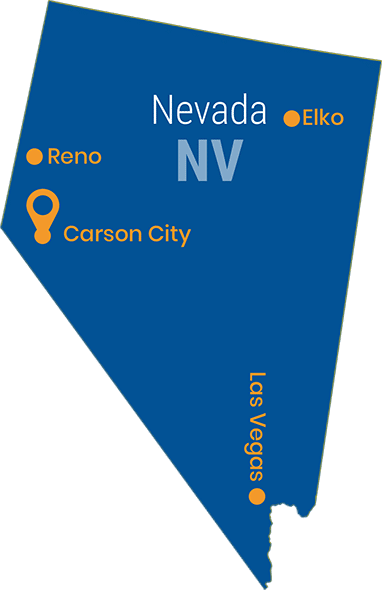What is Software Engineering?
Prospective students interested in the development of applications, systems, and software will likely find degrees in software engineering appealing. Those enrolled in these programs can expect to gain knowledge and skills that are highly useful in a variety of information technology (IT) occupations and industries. As a result, graduates are often versatile and capable of pursuing numerous careers. Many of the most engaging opportunities exist in the telecommunications, healthcare, finance, and insurance fields.
Software engineers create and maintain the underlying systems needed to run devices and/or control networks for computer applications. While most of these professionals are expected to have a broad view of project system and software requirements, their responsibilities can vary significantly. Some take on more active roles than others. Those with limited involvement may only be tasked with designing and developing single mechanisms to meet user needs. Software engineers contributing more, on the other hand, may have to create every piece of the application and/or system, as well as determine how all the pieces will work together when completed.
Other common duties include performing regular maintenance and testing to software. They also spend a lot of time creating corresponding reference documentation for the systems they work with. This ensures others have access to pertinent information during upgrades and when issues arise. In some cases, software engineers will also be expected to supervise other information technology workers.

Featured Online Programs
Online Software Engineering Education in Nevada
According to the US Bureau of Labor Statistics (BLS), employment for software developers, quality assurance analysts, and testers is projected to grow 25% from 2021 to 2031. This is much faster than the average for all occupations and will result in an increase of about 162,900 job openings each year.
While information technology is not considered one of the top industries in Nevada, many of the state’s primary sectors do utilize professionals in this field. In fact, software engineers can be found working in almost any type of company and organization. Individuals seeking employment in Nevada are likely to have the best prospects in entertainment, real estate, business, education services, healthcare, finance, and insurance.
Based on data provided by the BLS, Nevada employed 4,150 software developers in May 2022. Overall, however, the state maintained 25,750 computer and mathematical occupations. The annual mean wage for these professionals ranged between $87,660 and $119,870. Notably, both are significantly above the state’s reported annual mean wage of $55,490 for all occupations.
Nevada is home to many higher education institutions, several of which offer degree programs in software engineering and other related majors. Remote learning also makes it easy to enroll and attend classes with colleges and universities throughout the nation. Those planning to seek employment in Nevada, however, may want to give preference to schools located in the state. These institutions will offer the most geographically relevant curriculums, ensuring students obtain the knowledge and skills needed to meet local employer standards and expectations. Some schools that might be options include the University of Nevada - Reno, Hughes College, and others offering a computer science department that can provide students with the education they require for this and other careers.
Prospective software engineering students should realize that education standards for information technology (IT) jobs can vary significantly. Employer expectations may differ even for jobs with the same titles. While the Bureau of Labor Statistics (BLS) reports that bachelor’s degrees in computer and information technology or a related major are standard for software developers, quality assurance analysts, and testers throughout the nation, there are still opportunities available to those with little or no higher education. Some entry-level jobs may even be available to those with only high school diplomas or GEDs and some amount of self-taught knowledge in the field.
While opportunities exist to those without formal education, most companies and organizations prefer to hire candidates with academic degrees. Many colleges and universities in Nevada offer software engineering programs, as well as other related majors. Options are typically available at the associate, bachelor’s, master’s, and doctoral levels. Some academic institutions also provide professional certificates for undergraduate and graduate students.
Online Associates (AS)
Associate degrees in software engineering, computer science, or computer engineering degrees generally consist of 60 credit hours of coursework that take full-time students approximately two years to complete. Most two-year undergraduate programs like these offer a combination of both general liberal arts and major-specific classes. While curriculums vary, students can typically expect to study basic communication, mathematics, and science subjects as well as content within their majors. Other common areas of study include programming, web design, database management, business, and management. Graduates not only obtain a broad introduction to the software engineering field, but they often develop strong academic foundations for future learning and learn to communicate effectively.
These programs tend to cost much less than earning traditional four-year degrees. This is because most are offered by community colleges, which usually charge lower tuition and fee rates. As a result, associate degrees are a great choice for anyone who wants to save money while earning a degree.
Graduates with associate degrees in software engineering and other related subjects are typically qualified to apply for jobs as computer programmers and web developers. Notably, however, they rarely meet minimum education requirements for software engineering positions. In most cases, earning a bachelor’s degree will be necessary to perform this type of work.
Online Bachelors (BS)

Bachelor’s degrees in software engineering, computer engineering, or computer science degrees generally consist of 120 credit hours of coursework that take full-time students approximately four years to complete. These are undergraduate programs, as well, with curriculums usually comprised of both general liberal arts and major-specific classes. Courses expectations are similar to those at the associate’s level. Students are likely to study basic communication, mathematics, and science subjects in addition to mobile software development, cross-platform engineering, programming techniques, knowledge of computer networks, software design, and information technology security. Instruction in leadership and business is also common.
While not always the case, many colleges and universities also allow software engineering majors to select concentration areas. This can give those enrolled access to a series of specialized classes related to relevant sub-fields.
Graduates often possess the knowledge, skills, and education needed to apply for entry-level employment as software engineers, software developers, information systems managers, computer systems analysts, information security analysts, computer scientists, and network systems administrators. It may be possible to find work in other industries as well, however, as expertise in this subject is frequently sought by employers.
The majority of occupations in the information technology field require candidates to possess bachelor’s degrees, but job prospects do improve with more education. More advanced degrees typically lead to even greater professional opportunities. As a result, those interested in pursuing better employment opportunities and higher pay may benefit from enrolling in master’s degree programs. Prospective graduate school students should be prepared to meet established minimum grade point average (GPA) and Graduate Record Examinations (GRE) score requirements set by their chosen institution.
Find Your Online Software Engineering Program
Online Masters (MS)

Master’s degrees in software engineering generally range from 30 to 45 credit hours of coursework that take full-time students approximately two to three years to complete. While general liberal arts classes are no longer incorporated into the curriculums, many academic departments require applicants to possess specified undergraduate courses as prerequisites. This ensures all incoming students have the foundational knowledge and skills necessary to study advanced topics in the field.
Every program is different, but those enrolled can typically expect to receive extensive instruction in topics related to the software development lifecycle, management, innovation, information trends, and the latest technology developments. As master’s degrees are intended to prepare students for high-level positions, they also tend to incorporate opportunities to gain real-world experience. Many colleges and universities require capstone projects and/or internships prior to graduation.
Because master’s degree graduates who majored in software engineering often possess superior knowledge and skills, they are frequently preferred by employers. While it may be possible to qualify for a wide range of employment options, some of the most common jobs available include software engineer, software developer manager, computer network architect, senior software engineer, and solutions architect.
Online Doctorate (PhD)
A PhD or doctorate degree in computer science or software engineering may consist of between 60 and 120 credit hours that can take full-time students up to seven years to complete. Computer engineering graduates and those who have already completed lower-level computer science programs can all access this level of education. These terminal degree programs are often very academically intensive, with extensive instruction in the research and development of software systems. Curriculums vary, but students often learn about various techniques and tools used during advanced design and prototyping, as well as economic trends and privacy laws. Other common areas of study include maintenance and security strategies.
While the first few years of enrollment typically consist of traditional classroom instruction and coursework, this gradually transitions into independent study, research, and writing that culminate in the presentation and defense of dissertations prior to graduation.
Graduates often qualify for many of the same employment opportunities available to those with master’s degrees. These degrees do, however, serve as better preparation for upper-level management occupations and often lead to higher pay. Doctoral degrees are also required for anyone seeking jobs as post-secondary professors at colleges and universities or positions as scientists in research laboratories.
Become a Software Engineer in Nevada
One of the first steps to becoming a software engineer in Nevada is simply recognizing your interest in the field. Prospects for this occupation are highly promising, as they are for many other related professions available in the state. With so many career options, it’s important to identify your exact goals before investing a significant amount of time and/or money. Job standards and expectations vary, so you will also need to become familiar with various requirements. This will ensure you have the necessary education, training, and experience to succeed.
Most prospective software engineers start by earning bachelor’s or master’s degrees from appropriately accredited colleges and universities. Depending on your intended profession, however, studying computer science, computer information technology, or cyber security may also be acceptable. In some cases, majoring in basic engineering and/or mathematics can prepare you for work in this field. As a result, you should always consider the education requirements for your desired career carefully and select a degree program accordingly.
It's also important to find ways to gain hands-on experience relevant to software engineering. This can be done by participating in internship opportunities while attending university or by accepting entry-level employment after graduation. In both cases, you can begin applying the knowledge and skills learned in school and gain a better understanding of what it is like to really work in the profession. The more experience you have, the more competitive you will be when applying for more advanced occupations.
Find Online Software Engineering Schools
In addition to earning a degree and gaining experience, new and seasoned software engineering professionals often benefit from obtaining one or more relevant certifications. Not only do additional credentials indicate dedication to the, but they can also highlight unique expertise in specialized subjects. They are often a great way to stand out among other candidates when applying for jobs. While not usually required for entry-level employment, most employers give preference to individuals with relevant certifications. Some companies and organizations even pay professionals more when they possess certain specified credentials.
There are numerous credentialing opportunities available. It’s worth noting, however, that Nevada does not specify which certifications are necessary or best for software engineering professionals in the state. In most cases, you are free to pursue any of the options available that are likely to enhance your portfolio. Still, some credentials are more reputable than others. It’s generally recommended that you pursue certifications offered by well-known and trusted organizations. The Institute of Certification of Computer Professionals (ICCP), for example, is a highly recognizable certifying body in the field.
Some of the most popular certification options available to software engineers include:
- Certified Secure Software Lifecycle Professional (CSSLP)
- Certified Software Development Professional (CSDP)
- Certified Software Engineer (CFE)
- CIW Certified Web Development Professional
- Amazon Web Services (AWS) Certified Developer
- Oracle Certified Master (OCM)
- Salesforce Administrator
- Microsoft Certified Azure Solutions Architect
- Project Management Professional (PMP)
Many software engineering students and professionals also join professional associations and organizations. These groups often offer many benefits to their members, including access to helpful resources and the ability to interact with like-minded individuals in the field. Perks vary, but it’s common to receive career development assistance, event discounts, monthly publications, and access to relevant academic journals.
While there are many associations and organizations relevant for information and technology professionals, some of the most prominent examples include:
- Association for Computing Machinery (ACM)
- Association of Software Professionals (ASP)
- Association for Women in Computer (AWC)
- Institute of Electrical and Electronic Engineers (IEEE) Computer Society
- Python Software Foundation (PSF)
Careers for Software Engineering Graduates
- Application Developer
Application developers create, develop, manage, and maintain new programs and software commonly used on smartphones, computers, tablets, and other electronics. While they can work for themselves as independent contractors, they commonly work full-time for organizations. They help their employers remain relevant by incorporating the use of the latest technologies and web developments and they often collaborate with other web and IT professionals. According to PayScale, application developers make an average base salary of $72,463 per year. - Computer and Information Systems (IS) Manager
Computer and information systems (IS) managers are responsible for overseeing teams of other IT professionals. They typically work for organizations by troubleshooting IT problems, administering computer system updates, and installing new hardware/software. They may also perform various administrative duties: budgeting, hiring employees, training, monitoring worker performance, delegating assistance requests, and researching new technologies. According to PayScale, information systems managers make an average base salary of $87,717 per year. - Computer Programmer
Computer programmers work to improve the functionality of computer software and applications. They typically achieve this by writing, modifying, and testing code and scripts. They use plans from developers and engineers and transform them into instructions that computers can follow. They may also update and expand upon existing programs, test programs for errors, and fix faulty lines of computer code. According to PayScale, computer programmers make an average base salary of $67,889 per year. - Computer Systems Analyst
Computer systems analysts work for companies and organization to design and implement improvements for their computer systems and procedures. This process typically includes analyzing the current setup, consulting with managers to determine how tech is utilized, and then researching ways to increase efficiency. They may also make existing computer systems more functional and they often present details regarding the potential costs and benefits of making upgrades. According to PayScale, computer systems analysts make an average base salary of $73,224 per year. - Software Developer
Software developers create computer applications with the intent of helping users perform specific tasks on various electronic devices. They can achieve this using various computer languages including C++, Python, and Java. A vast understanding of operating systems is also necessary as they commonly utilize Linux, Solaris, and HPUX in their work. They generate many different types of software; they may work alone or with systems engineers and computer programmers throughout the product creation process. According to PayScale, software developers make an average base salary of $75,708 per year. - Software Engineer
Software engineers utilize various engineering principles to develop computer software. Rather than working on individual networks, however, they most frequently deal with complex and large systems. They also analyze and modify existing software to ensure it meets user needs. Some employers expect them to design, construct, and test new applications as well. According to PayScale, software engineers make an average base salary of $90,649 per year. - Systems Administrator
Systems administrators are responsible for ensuring that local area networks, wide area networks, and other data communication systems work properly. Most of their time is spent organizing, installing, and supporting various systems, but they must also regularly manage, troubleshoot, and proactively update associate hardware and software assets. Other tasks include preventing issues from developing, sharing project status, monitoring activity, and highlighting achievements to shareholders. According to PayScale, systems administrators make an average base salary of $64,989 per year. - Cybersecurity Analyst
- Web Developer
- IT Specialist
Search All Programs
